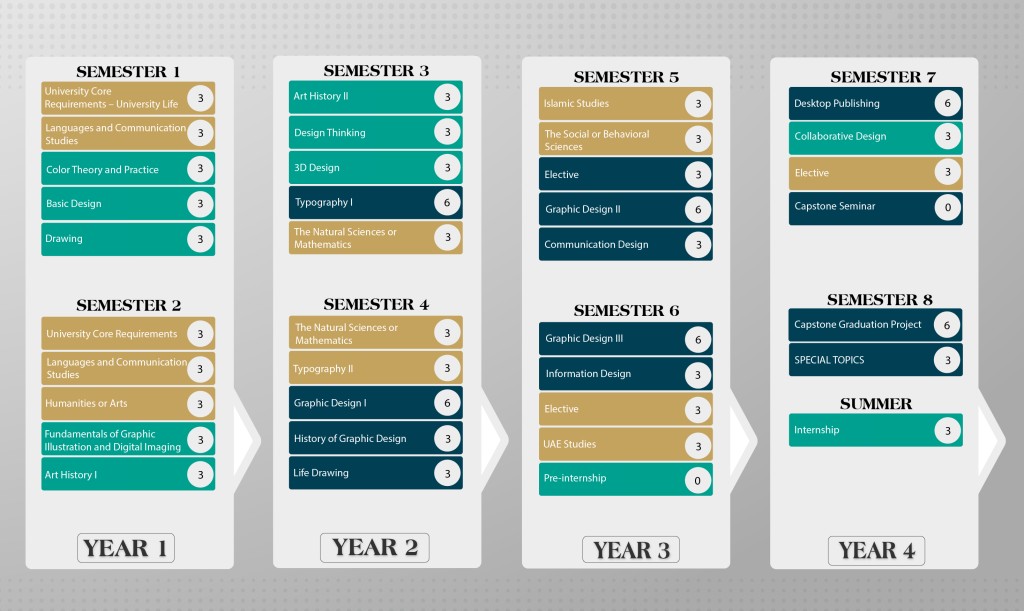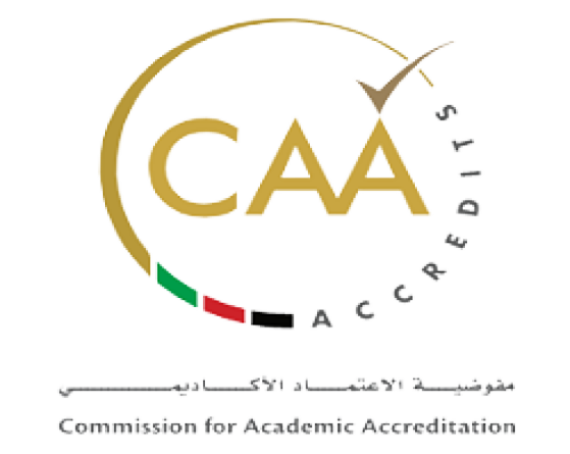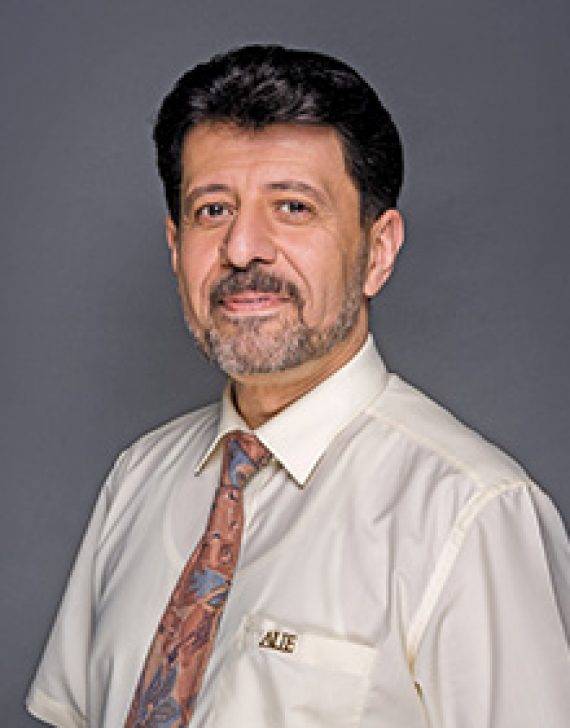Bachelor Of Science In Design - Graphic Design

Design is Thinking Made Visible – Saul Bass
Graphic Design, being one of the foremost means of communication today, allows students to develop personal visual responses that will stand out from the crowd. Students will have the opportunity to create ground breaking designs to meet a variety of graphic needs, including advertising, packaging, print media, branding and web production. Many companies rely on graphic arts professionals to create brand communications concerning their business objectives. A degree in the Graphic Design program from AUE can help you to take your creative talents into the fast-paced business world.
Facilities
Large design studios, state-of-the-art electronic media, printing facilities and an extensive library are all on hand for students to use in an open and engaging learning environment.
Aims
Good design is good business! Graphic Design at AUE offers students the chance to study a diverse range of disciplines including packaging, branding, advertising and publishing in order to ensure the most up-to-date training in professional design.
At AUE, we encourage learners to develop technical, creative and critical thinking skills that are essential to succeed in today’s demanding design industry. Students will be encouraged to develop ideas through experimentation and investigation, with the aim of challenging them to explore the broadest possibilities when responding to design briefs. Our inspirational lectures, workshops, presentations and tutorial support are designed to give students the best possible introduction to a career in design across a wide range of media.
- Demonstrate breadth and depth of knowledge in fashion design concepts and processes using industry terminology.
- Use and integrate knowledge and relevant technologies, methodologies, and professional skills into meaningful visual communication design solutions.
- Apply critical thinking and analytical skills per creative industry standards.
- Produce a satisfactory body of creative work, appropriate for a professional position in the visual communication industry.
- Appraise graphic design practices, ethical and social responsibilities in regional and global contexts.
ADMISSION
REQUIREMENTS
GRADUATION REQUIREMENTS
For undergraduate degree completion, undergraduate students must satisfy the following requirements:
- Earn a minimum CGPA of 2.00 on a scale of 4.00.
- Successfully complete all courses as described in the study plan.
- The Degree Completion requirements must be met within the timeframe of the program.
- Transfer students must successfully earn a minimum of 50% of the course credits for the program at AUE.
ACCREDITATION
PROGRAM STRUCTURE
Course Category
Total Number of Courses
Total Number of Credit Hours
General Education Courses
11
33
Core Courses
11
30
Specialization Courses
13
54
Free Electives
3
9
Total
38 Courses
126 Credit Hours
FEE STRUCTURE
Preparatory Courses
Prior to their enrollment in the program, students applying for Bachelor of Science in Design must sit for the placement test related to the program, failure to successfully passing the placement test, they are required to enroll in the following courses:
| # | Course Code | Course | Credit Hours | Exemption Condition |
| 1 | CIT 90 | Computer Preparatory | 0 | Passing the Placement Test |
| 2 | DES 90 | Drawing Preparatory | 0 | Passing the Placement Test |
| 3 | ENG 99 | Academic Writing (*) | 0 | Passing the Placement Test |
GENERAL EDUCATION COURSES
11 COURSES | 33 CREDIT HOURS
A: University Core Requirements
The student selects 6 credit hours (2 courses) from the list below:
B: Languages and Communication Studies
The student selects 9 credit hours (3 courses) from the list below:
Students must take all of the following courses:
This course provides students with advanced writing skills in English so that they can successfully pursue their studies in various academic specializations. It helps students to develop, improve, and upgrade their writing and structure skills, and it also acquaints students with technical writing, research papers, and essays since brief research methods are applied in student projects and assignments.
Students must take one of the following Arabic Language courses:
C: The Natural sciences or Mathematics
The student selects 6 credit hours (2 courses) from the list below:
D: The Social or Behavioral Sciences
The student selects 3 credit hours (1 course) from the list below:
E: The Humanities or Arts
The student selects 3 credit hours (1 course) from the list below:
F: Islamic Studies
The student selects 3 credit hours (1 course) from the list below
G: UAE Studies
The student selects 3 credit hours (1 course) from the list below
CORE COURSES
11 COURSES | 30 CREDIT HOURS
Pre-Internship is a zero credit hour internship preparatory course designed for students seeking an internship. The course will prepare students to successfully plan their internship by researching and identifying potential internship opportunities, creating professional resume and letter of introduction, developing interviewing and networking skills as well as a portfolio per industry requirements. Students will go through different learning modules including experiences, team work skills, communication skills, leadership skills, problem solving, self-management and professionalism to be able to make the most of their internship.
SPECIALIZATION COURSES
13 COURSES | 54 CREDIT HOURS
ELECTIVE COURSES
3 COURSES |9 CREDIT HOURS
9 Credit Hours must be chosen from any other college/ specialization in condition the prerequisites of the chosen courses are met.
ATTENDANCE
Weekday Morning Classes
MON – WED | BETWEEN 9:00 AM – 4:00 PM
Weekday Evening Classes
MON – WED | BETWEEN 4:00 PM – 9:00 PM
WHEN CAN I JOIN
Student can join at the beginning of any semester
SEPTEMBER
FALL SEMESTER
MIN 3 COURSES | 9 CREDIT HOURS
MAX 6 COURSES | 18 CREDIT HOURS
JANUARY
SPRING SEMESTER
MIN 3 COURSES | 9 CREDIT HOURS
MAX 6 COURSES | 18 CREDIT HOURS
MAY
SUMMER SEMESTER
MIN 3 COURSES | 9 CREDIT HOURS
RECOMMENDED STUDY PLAN



